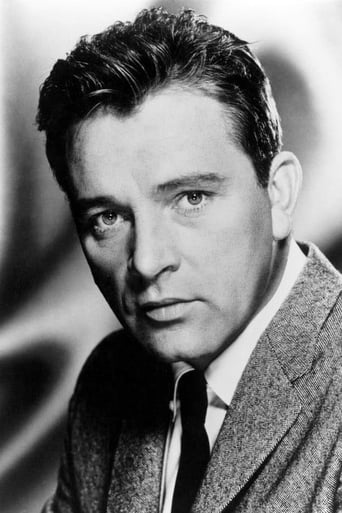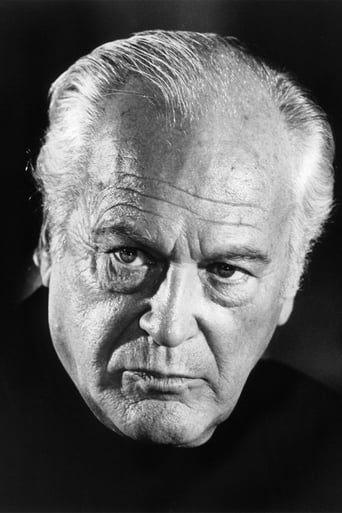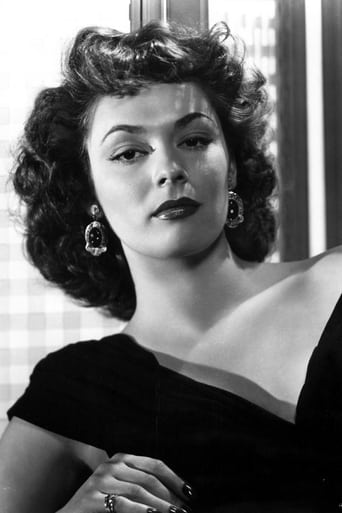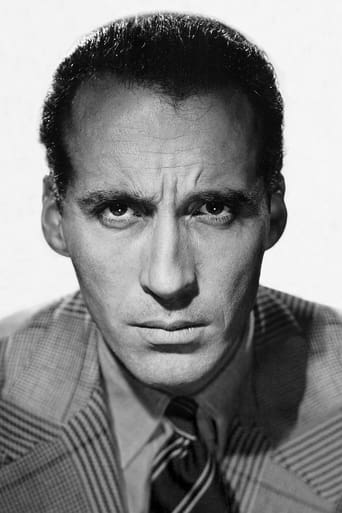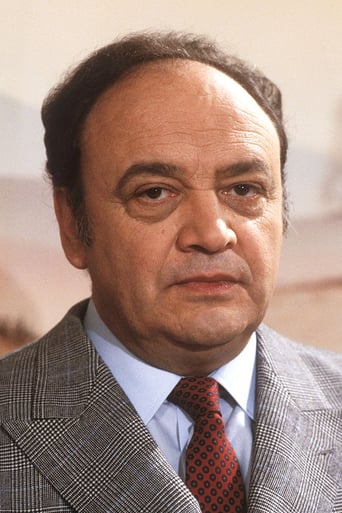Raetsonwe
Redundant and unnecessary.
Claysaba
Excellent, Without a doubt!!
Mathilde the Guild
Although I seem to have had higher expectations than I thought, the movie is super entertaining.
Zlatica
One of the worst ways to make a cult movie is to set out to make a cult movie.
carvalheiro
"Bitter victory" (1957) directed by Nicholas Ray it seems like a forgotten movie after all these years going by loss of memory from the viewers, but is of course a thought concerning illusions of battle before and after like mirrors on sands. All that gave us another view from the war, with a much more human vulnerability and even the weakness of a true character in a shadowy intimacy, as only apparently unvanquished as confused minds in a moral addict to win something more than a medal after death, because if staying alive as another of one of the two characters in different grades of officer's hierarchy perhaps he also may have lost his wife. This movie concerns masculinity as fake target for a brainstorm about love and decay of feelings, with some alcoholic dreams to complete and complicating things and hierarchy, among officers during the Rommel debacle as fox of the desert on North Africa, during the trail across Libya. Director Nicholas Ray was underestimated somewhat in his cynical view and conception concerning value and results of the war or any war in the minds of human beings placed in a hierarchy of warrior's society. Maybe by his own conviction of peace means for reaching civil targets as contributing for the fight against hungry and thirst, imperfect feelings about love and reproduction of family, a new habitat out of eternal diaspora, love for the children and descendants. His sentimentality and deaf violence out of the shots were famous in meantime as misery of the humankind. This movie too inspired the fatigue of war expelled not exactly with a scale extremed by reverting heroism and cowardice only, but claiming right to the spirit of melancholic character, from a few officers with such a corporative intriguing mind in conditioned atmosphere, as the sickness of barracks as foolish underground off the reestablished hierarchy and the promotion waiting for being upper considered. Forgotten all the tricks of the battle was like a rear defection of moral, attending now the nostalgic landscape from their professional remembrances, which move them for the more competitive standing by : if one pick up the merit belonging to the other in exchange of a woman lost for the battle, it is a twist between sex and glory, because is also an affair for the little contravention in a conventional adultery case of such a cruelty, inspired on the random without antidote in short term from animal reign fatality in this part of the world. Apparently there is no rescue against the bite of a poisonous desert's scorpion, it seems from that last hand-tale written on the screenplay(by Vladimir Pozner ?), with an artificial compensation for the sentimentality of the city background, encircled by windy sands of think tanks prisoners of selfish intimacy and waiting for promotion in the career at any cost - the taste of Ray in 1957, the geophysical international year and also when the struggle approaches for independence nearby, seemingly was pretext for losing somewhat the élan of another fight - and foreseen nowhere friendship between people and camels.
antcol8
As it were...The 2 films (this one and Flying Leathernecks) have more in common than one would like to believe, given the fact that F.L. is often thought of as not a "real" Ray film. But the rivalry between 2 military men who dance around the same rank (one being generally subservient - not by choice - to the other) is in both cases treated as as much a psychological issue as an issue of military discipline. The difference is that in F.L. the psychological aspect is soft-pedaled (except for a couple of key scenes). I have to admit that there are a couple of ways that I prefer F.L. Obviously, Bitter Victory is a much finer and more fully realized film. But it feels failed to me in some important ways: it seems to aspire to the status of independent artwork (the score, the long scenes of trudging through the desert), and as such it is not totally successful. It doesn't break free of its genre moorings the way Fuller or Sirk or Ophuls (etc.) can and often do. F.L. doesn't pretend to be more than it is: it stays solidly within genre conventions, easy resolution and all. Its lack of aspiration makes it easier to watch, to some degree. There are unforgettable moments in Bitter Victory: the scorpion, the camel bladder, the raid, the dance, the fight in the street (pure Ray). But the whole doesn't convince me, the issues don't move me. Ray often seems poised between Kazanian script and actor - driven film-making on one hand and more personal crazy auteurist cinema on the other. I haven't had that revelation that caused Godard to say "the cinema is Nicholas Ray". I'll keep trying.
dbotoreales
Before entering the cinema theater I read a review of the film made by Godard in Cahiers du Cinéma. He defined this movie 'more than cinema' and a pure reflection of life. The miserable and coward behaviour of the character (played superbly by Curd Júrgens), a bewildered Richard Burton when futilely carries over his shoulder a dying soldier through the desert until he realizes his death: 'I kill the living and save the dead! or the moment when Ruth Roman looks for "Jimmy" among the survivors of the expedition, and many more... are all beautiful pieces of life, probably bigger than life... How easy is killing!? I also wanted to emphasize the brilliant expressionist photography used in the film. Especially in the nocturnal sequences.
Howard_B_Eale
Thankfully now available in its full 103-minute version, this is one of Nicholas Ray's strongest works and one of the handful that doesn't bear the marks of studio meddling. It's an unrelentingly grim tale of cowardice and lost love which is almost incidentally set during WWII. Richard Burton manages to deliver cutting, pointed dialogue without making it hammy, and Curt Jurgens' performance of a deceitful squad leader is extremely strong; a coiled spring which never quite releases.I can't help but wonder if some of the comments above are based upon the US version, which was cut by a whopping 21 minutes, because this is unquestionably one of the best of the Nick Ray canon. Working in many of his trademark themes of sacrifice and loss but keeping the melodrama surprisingly low-key, it's also gorgeously photographed in 'Scope black-and-white and none of the performances falter. Those who have enjoyed ATTACK, HELL IS FOR HEROES, THE BIG RED ONE and particularly Anthony Mann's brilliant MEN IN WAR are well advised to check this out, and it's a must-see for Ray enthusiasts, right up there with ON DANGEROUS GROUND, THE SAVAGE INNOCENTS, JOHNNY GUITAR and IN A LONELY PLACE.

